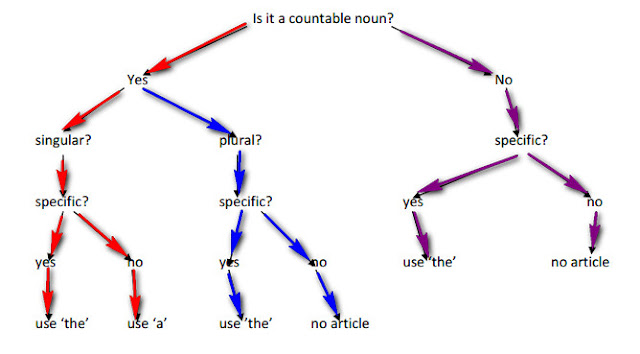what are the Modals ? definition&explanation
Modals:
Definition1: Modal auxiliary is the verb
that is used with another verb. Ex: can, may, should….; to express possibility,
permission etc...
Definition2: Modal auxiliary
generally expresses speaker attitudes (way of thinking or behaving). For example:
modals can express that a speaker feels something is necessary, advisable, possible,
permissible or probable.
The Modal
auxiliaries in English are:
Can, could, had
better, may, might, must, ought to, shall, should, will and would.
Modal
|
Meaning
|
Example
|
can
|
to express
ability
|
I can speak a little Russian.
|
can
|
to request
permission
|
Can I open the window?
|
may
|
to express
possibility
|
I may be home late.
|
may
|
to request
permission
|
May I sit down, please?
|
must
|
to express
obligation
|
I must
go now.
|
must
|
to express
strong belief
|
She must be over 90 years old.
|
should
|
to give
advice
|
You should
stop smoking.
|
would
|
to request
or offer
|
Would you like a cup of tea?
|
would
|
in
if-sentences
|
If I were you, I would say sorry.
|
ð Modal verbs do not take "-s" in the third
person( he, she, it )
Correct: She can do it.
Incorrect: She cans do it.
==>The
only exception ought to, which is followed by an infinitive
(to + the simple form for a verb).
==>Polite
request with (I) as the subject.
Ex: May I borrow your pen, please?
Could I
borrow your phone, please?
·
May I and
could I are used to request permission. They are equally polite.
·
Note: In a
polite request , could has a present or
future meaning not a past time
Incorrect: May you pass the salt?
May is used only with I or we in
polite request.
==>Can is used informally to request permission
==>Can
I is usually considered a little less polite than May I or Could I.
==>Often
the response to a polite request is an action, such as a nod or shake of the
head, or a simple “uh-huh”.
+ Yes, certainly, yes of course.
ð Polite request with “ You” as the subject :
·
Ex: Would you pass the salt (please)?
Will you pass the salt (please)?
==>the
meaning of would you and will you in a polite request is the same; would you is
more comment and is often considered more polite.
. Many modal verbs cannot be used in the past tenses or the future tenses.
Examples:
- He will can go with us. Not Correct
- She musted study very hard. Not Correct
Check your understand : Modal verbs exercise with answers


